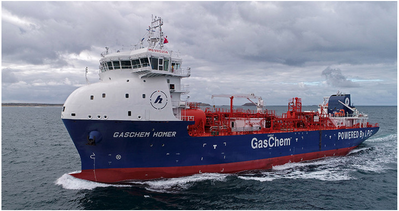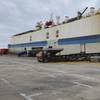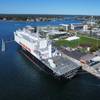Blackout Due to Incorrectly Configured Generators
A gas tanker had just left its berth at the Port of Brisbane, Australia, when it lost propulsion for two minutes as two of its three electrical generators were not properly configured, an ATSB final report has confirmed.
On March 15, 2025, the 100-metre, Liberian-flagged Gaschem Homer departed the BP Products berth in the Port of Brisbane, under the conduct of a harbour pilot.
While it was being turned towards the port’s entrance, it experienced an electrical blackout, resulting in the total loss of all propulsion and steering control.
Power was able to be restored after about two minutes, during which time the pilot used the assisting tug to keep the ship within the shipping channel.
An ATSB investigation identified two of the ship’s three auxiliary diesel generators had been incorrectly left in manual mode for the departure.
This meant that when the bow thruster, an auxiliary propulsion unit, was engaged during departure, the resultant surge in electrical load led to an overload of the only generator providing power, and the subsequent tripping and blackout.
No injuries or damage occurred in this case.
The ATSB’s investigation identified Gaschem Homer’s safety management system did not have adequate controls to manage the risk of a complete power failure due to generators being inadvertently left in manual mode during manoeuvring operations.
Specifically, the ship operator’s safety management system had generic engine room operational procedures for its fleet. This meant Gaschem Homer’s safety management system did not consider the specifics of its systems.
The pre-departure checklist was purposed as a substitute for a detailed procedure, but provided little in the way of specific and usable task descriptions. Consequently, the crew had to rely on memory and experience to complete critical tasks, which increased the likelihood of an oversight.
In response, the ship’s manager has conducted a risk assessment and established additional controls to prevent total power failures.
The shipboard safety management system was also amended to include guidelines for blackout prevention and procedures requiring generators to be set for automatic load sharing before manoeuvring.
Pre-departure and arrival checklists have also been amended, and a power demand matrix has been developed.
The company has also introduced targeted training for watchkeeping engineers on critical power management and monitoring tasks.











